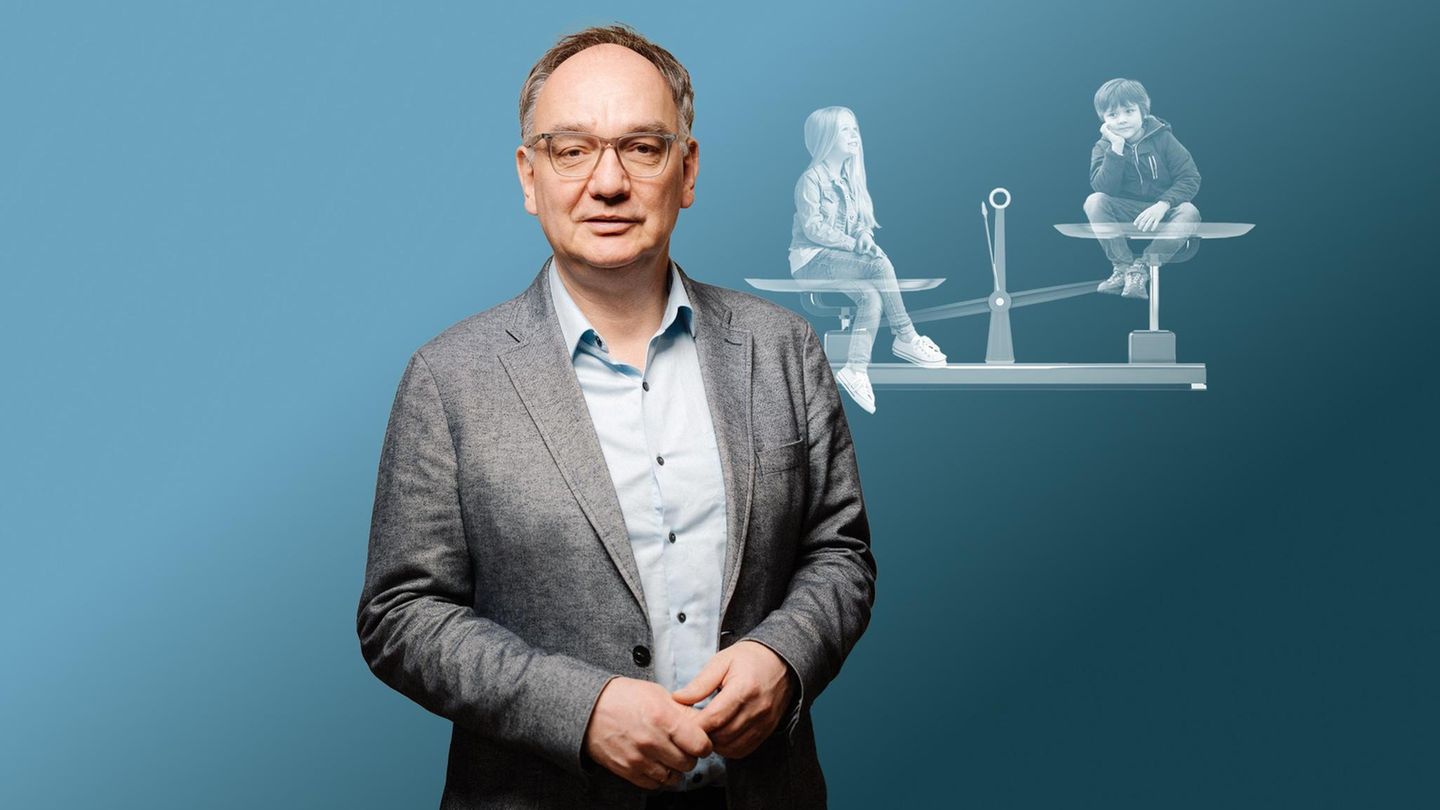Too big, too expensive: the majority of citizens would like to order the Bundestag to downsize. The traffic light coalition wants to put its concept to the vote soon.
In the planned reform of the electoral law, there is no rapprochement between the traffic light coalition and the Union, which have each presented very different concepts for downsizing the Bundestag. Politicians from the SPD, Greens and FDP accused the Union of being too complicated during the first consultation in the plenum on Friday. It is also not suitable for guaranteeing a substantial reduction in the number of members of the Bundestag from the current 736 elected representatives.
Detlef Müller (SPD) said that real reform was urgently needed in order not to damage parliament’s credibility. In conversations with citizens and scientists, he often hears the argument: “The parties will hardly reduce their own mandates, in line with the famous quote: ‘If you want to drain the swamp, you shouldn’t ask the frogs,'” said the member of parliament from Chemnitz.
Konstantin Kuhle (FDP) praised the traffic light proposal, which he had presented together with politicians from the SPD and the Greens, as a measure against professional politics. He emphasized: “Parliamentary democracy is a temporary mandate.” Kuhle said to the CDU/CSU: “Let’s continue this conversation.” Despite general weaknesses, the union proposal also contains “some very good points”.
Target size of 598 MPs
The plans of the traffic light coalition are intended to ensure that the Bundestag shrinks back to its normal size of 598 MPs after the next election by abolishing overhang and compensation mandates. For individual direct candidates who are not “secured” by their party’s state list, this can mean that they do not win a mandate even though they received the most votes of all candidates in their constituency. For its part, the Union is proposing a reduction in the number of constituencies from 299 to 270.
The fact that the Bundestag has grown has to do with the differentiation of the party landscape and the changed voting behavior. Overhang mandates arise when a party wins more mandates from the first votes than it is entitled to based on the result of the second vote. The party may keep these additional mandates. The other parties receive compensatory mandates in return.
“We want to pass our law in early March and hope for a broad parliamentary majority,” said the SPD parliamentary group’s domestic policy spokesman, Sebastian Hartmann, of the German Press Agency. Till Steffen (Greens) assured in the plenum that the Union would not stop them: “We’ll do it now.”
AfD worried about “mega constituencies”
Albrecht Glaser (AfD) said the traffic light proposal was very similar to a concept by his group on the 2020 electoral law reform. The AfD rejects the creation of “mega constituencies” as proposed by the Union. The left welcomed the traffic light proposal in principle. She took the debate as an opportunity to promote her proposal to allow foreigners to vote in federal elections after at least five years of legal residence. Susanne Hennig-Wellsow (left) also advocated lowering the minimum age for participation in the Bundestag elections to 16 and for a reform aimed at increasing the number of women in the Bundestag.
In the last federal election, the left remained just under the five percent hurdle and only got into parliament thanks to three direct mandates in parliamentary group strength on the basis of the so-called basic mandate clause. The Union proposes that this clause should only apply to five direct mandates in the future.
Michael Frieser (CSU) said that the traffic light groups could not guarantee that no more than 598 MPs would get a seat in the Bundestag according to their concept. He asked, “What about non-partisan candidates running?”
During the debate, it was repeatedly heard from the traffic light coalition that the CSU in particular had stood in the way of real reform for years out of self-interest. FDP leader Christian Lindner wrote on Twitter: “Reform must not fail because some want to gain party political advantages.”
SPD parliamentary group leader Dirk Wiese prophesied to the members of the Union: “The time when you sit on the hard benches of the opposition will also go beyond 2025.” The SPD, on the other hand, will do better in the upcoming federal elections than in 2021.
Source: Stern
I have been working in the news industry for over 6 years, first as a reporter and now as an editor. I have covered politics extensively, and my work has appeared in major newspapers and online news outlets around the world. In addition to my writing, I also contribute regularly to 24 Hours World.




